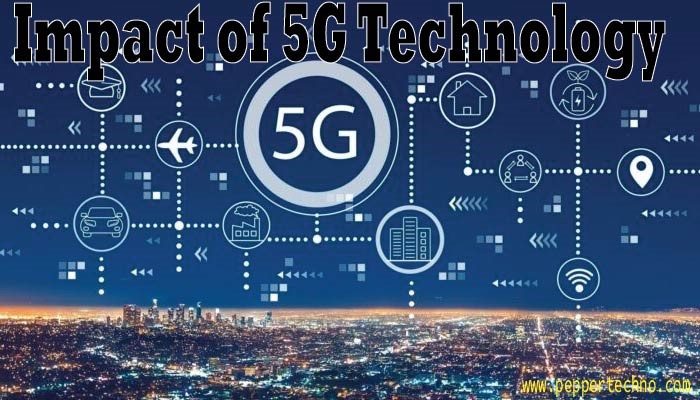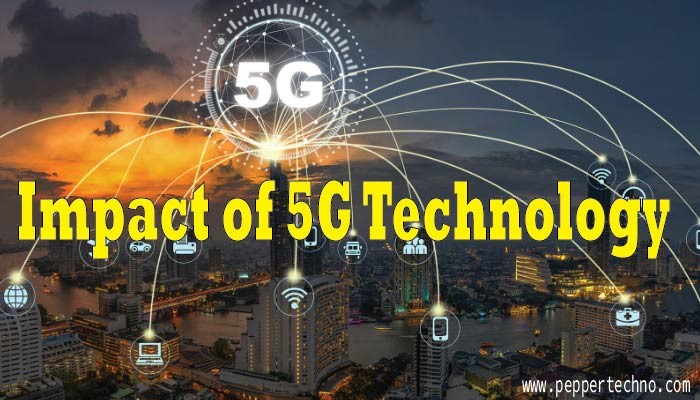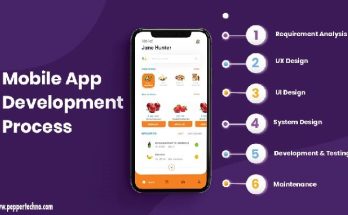Unleashing the Impact of 5G Technology: Exploring Its Impact on Society and Technology
The advent of Impoact of 5G technology heralds a new era of connectivity, promising unprecedented speed, reliability, and capacity to transform industries and empower individuals. In this article, we delve into the profound impact of 5G technology on society and technology, exploring its implications across various domains.

Understanding 5G Technology
1. Evolution of Wireless Networks
The fifth generation of wireless technology, known as 5G, represents a significant leap forward from its predecessors. Unlike previous generations, which primarily focused on enhancing mobile broadband, 5G is designed to support a diverse range of applications, including ultra-reliable low-latency communication (URLLC), massive machine-type communication (mMTC), and enhanced mobile broadband (eMBB).
2. Key Features of 5G Technology
Increased Speed: 5G networks offer significantly faster data speeds compared to 4G LTE, with peak speeds reaching up to 10 gigabits per second (Gbps). This enables real-time streaming of high-definition video, seamless gaming experiences, and rapid downloads of large files.
Lower Latency: 5G technology reduces latency—the delay between sending and receiving data—to as low as one millisecond. This ultra-low latency is critical for applications such as autonomous vehicles, remote surgery, and industrial automation, where real-time responsiveness is paramount.
Greater Capacity: With its ability to support a massive number of connected devices per square kilometer, 5G networks can accommodate the growing demand for IoT devices, smart sensors, and connected infrastructure in smart cities and industrial settings.
Impact of 5G on Society
1. Enhanced Mobile Experiences
The widespread adoption of 5G technology will revolutionize the way we interact with mobile devices, enabling seamless streaming of high-definition content, immersive augmented reality (AR) and virtual reality (VR) experiences, and multiplayer gaming without lag or buffering.
2. Empowering Smart Cities
5G technology serves as the backbone of smart city initiatives, facilitating real-time data exchange, intelligent traffic management, remote monitoring of infrastructure, and the deployment of connected devices for enhanced public services and urban sustainability.
3. Revolutionizing Healthcare
In the healthcare sector, 5G enables transformative applications such as remote patient monitoring, telemedicine consultations, and surgical robotics. The low latency and high reliability of 5G networks enhance the quality of healthcare delivery, particularly in remote or underserved areas.
4. Driving Economic Growth
The deployment of 5G networks stimulates economic growth by fueling innovation, driving productivity gains, and creating new business opportunities across industries. From manufacturing and agriculture to transportation and entertainment, 5G technology unlocks new possibilities for digital transformation and value creation.
Challenges and Considerations
1. Infrastructure Requirements
The rollout of 5G networks requires significant investment in infrastructure, including small cells, fiber-optic cables, and base stations. Addressing infrastructure challenges such as spectrum allocation, regulatory hurdles, and deployment costs is critical to realizing the full potential of 5G technology.
2. Security and Privacy Concerns
As the number of connected devices and data exchanges increases with 5G technology, cybersecurity and privacy become paramount concerns. Safeguarding sensitive data, securing network infrastructure, and implementing robust authentication mechanisms are essential to mitigate cyber threats and protect user privacy.
3. Digital Inclusion and Accessibility
Ensuring equitable access to 5G technology is essential to prevent the exacerbation of existing digital divides. Efforts to bridge the digital divide through infrastructure deployment, affordability initiatives, and digital literacy programs are crucial to ensuring that all communities can benefit from the opportunities afforded by 5G technology.
Conclusion
The impact of 5G technology extends far beyond faster internet speeds and improved mobile experiences—it has the potential to reshape industries, empower communities, and drive socio-economic progress. By harnessing the transformative power of 5G, we can build a more connected, intelligent, and inclusive future for generations to come.



